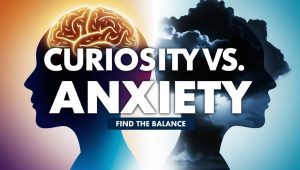Introduction
Video games have long been seen as sources of entertainment, but recent research suggests they may hold therapeutic potential. From helping manage anxiety to improving cognitive functions, gamification principles are being leveraged to promote mental well-being.
This post explores how video games can be used as therapeutic tools, the psychology behind gamification, and the potential benefits for mental health.
The Therapeutic Benefits of Video Games
1. Stress Relief
Engaging in video games can provide an escape from stressors and foster relaxation. Immersive games help players focus on challenges and objectives, reducing overthinking and anxiety.
2. Cognitive Enhancement
Games that require strategy, problem-solving, and quick decision-making can improve memory, attention, and executive functions.
3. Emotional Regulation
Certain games encourage emotional resilience by presenting players with scenarios that require patience, persistence, and adaptability.
4. Social Connection
Multiplayer games create opportunities for building friendships and a sense of community, which can combat feelings of loneliness and isolation.
5. Treatment for Mental Health Conditions
Serious games, designed with therapeutic intent, are being developed to treat conditions like PTSD, ADHD, and depression.
Also check: Why Our Brains Love a Good Mystery
The Psychology of Gamification
Gamification refers to applying game-like elements (e.g., points, challenges, rewards) to non-game contexts. Here’s why it works:
- Motivation: Reward systems tap into intrinsic and extrinsic motivations, encouraging consistent engagement.
- Progress Tracking: Levels and achievements provide a sense of accomplishment.
- Immediate Feedback: Players receive instant results from their actions, enhancing learning and adaptation.
- Immersion: Storylines and characters create an engaging environment that sustains interest.
Examples of Therapeutic Video Games
- SuperBetter: Designed to build resilience and improve mental health through gamified challenges.
- EndeavorRx: An FDA-approved game for children with ADHD to improve attention.
- Minecraft: Often used in educational and therapeutic settings to foster creativity and teamwork.
- Hellblade: Senua’s Sacrifice: Raises awareness about mental health issues while engaging players in an immersive narrative.
Challenges and Considerations
1. Overuse and Addiction
Excessive gaming can lead to addiction, negatively impacting mental and physical health.
2. Accessibility
Not all therapeutic games are affordable or widely available, limiting their reach.
3. Misuse of Gamification
Gamified elements may sometimes encourage unhealthy behaviors, such as compulsive spending in freemium games.
4. Need for Evidence-Based Games
Therapeutic claims must be backed by scientific research to ensure efficacy and safety.
FAQs About Video Games and Mental Health
1. Can playing video games really improve mental health?
Yes, certain video games can improve cognitive functions, reduce stress, and even assist in treating mental health conditions.
2. Are there risks to using video games therapeutically?
While beneficial in moderation, overuse or misuse can lead to addiction and other negative outcomes.
3. How can I identify therapeutic games?
Look for games designed with input from mental health professionals and backed by scientific studies.
4. What age groups benefit most from therapeutic games?
Therapeutic games are designed for all ages, but their suitability depends on the game’s goals and the individual’s needs.
5. Are all gamified apps beneficial for mental health?
Not all gamified apps are created with mental health in mind. Choose apps with clear therapeutic intent and positive reviews.
Conclusion
Video games have the potential to be powerful therapeutic tools when used mindfully. Whether for stress relief, cognitive improvement, or emotional support, the psychology of gamification opens exciting possibilities for mental health.
Do you have a favorite game that helps you unwind or focus? Share your experiences in the comments!









